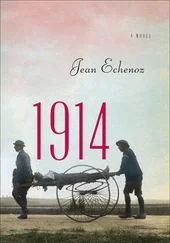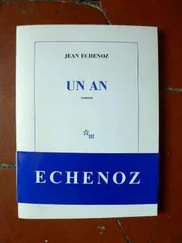They doubtless have no trouble selling their wood, for there don’t seem to be many trees at all around the city: not the slightest olive or fig tree, not one vine. Only the palm abounds, growing everywhere and serving for everything, providing Babylonians with bread, wine, vinegar, honey, and flour, not forgetting its dates, its heart, and its use in the fabrication of clothing, furniture, pillars, and posts — which explains the Persian song, mentioned by Strabo, celebrating the 360 uses of the palm.
Beyond the plain stretches the sterile desert, dotted with some sort of aromatic bushes and devoid even of the palm but inhabited by all sorts of wild animals one may venture to hunt. Although that isn’t so easy: a wild ass, for example, the meat of which is not unlike a more delicate venison, runs faster than a horse, and hunters must chase it in relays to have a hope of bagging one. The too-fleet ostrich is uncatchable, aided in its escape by its wings, which it uses as sails. The bustard is more accessible, for its flight is short and the bird is soon fatigued, but the taste of its flesh is well worth the hunter’s own fatigue. (Information furnished by Xenophon, a fellow less given to anecdotes than Herodotus but also less entertaining.)
On the other hand, throughout the alluvial plain surrounding the city and even within its precincts, the soil is wonderfully fertile. Although it rarely rains in this region, the system of irrigation invented by the Babylonians permits a considerable production of cereal crops: barley, several kinds of wheat, and other grains. Herodotus doesn’t hesitate to claim that the soil produces up to three hundred times what is sown. He exaggerates, as usual: he knows we know he does that, so, persuaded in advance that no one will believe him, he doesn’t bother mentioning just how high the sesame or millet stalks can grow. And it’s true that he’s been caught, now and then, embellishing certain things: Plutarch figured it would take several books to inventory his lies whereas Aulus Gellius coldly dismisses him as a pathological liar.
But Herodotus doesn’t give a damn, coming and going in the meantime, walking about in the streets of the city and its environs, looking all around, gathering information, trying in his clumsy Akkadian to talk with the people he meets, among whom is Tritantaichmes, the satrap of Babylon at the time of his visit, who speaks to Herodotus in particular about the administration of the city. One tries to imagine the explorer taking in this information, inscribing it in his memory before transferring it to papyrus or marking it on clay tablets rectoverso, as the Babylonians do, who keep them as is or, to be on the safe side when the information is important, have them baked.
It is perhaps this Tritantaichmes himself, moreover, whom Herodotus takes as a model to describe the attire of Babylonian men: heavily perfumed, they are shod in the Boeotian style, wear a tunic of linen under another of wool, a light white cloak, a tall headdress like a miter on their long hair, and carry a staff topped with a carved apple, rose, lily, eagle, or some other ornament. And nothing prevents us, either, from imagining this man, dressed in this fashion, deep in discussion with the explorer while having a little beer that one drinks with a straw, as everyone knows they do in Babylon whenever they can and even, eventually — a terra-cotta relief attests to this, preserved in the Musée du Louvre — while having sex.
Speaking of which, there is one Babylonian custom the explorer views with a most critical eye: the requirement that every woman go to a temple to prostitute herself. True, she must perform this duty only once in her life and can then go home, but this system still displeases Herodotus. It displeases him all the more in that it isn’t fair: there’s a double standard, because while pretty women can swiftly acquit themselves of this task and go on home, this isn’t at all the case for the ugly ones, who have a lot of trouble finding a taker and must remain in the temple, sometimes for several years, until they complete their mission. And that Herodotus doesn’t like.
He entirely endorses, on the contrary, another institution perfected in Babylon and which concerns marriageable girls. Now this system — he thinks it’s perfect. The girls are brought to a marketplace, he explains, to be auctioned off, the prettiest first and then the others in descending order of loveliness, on condition that the buyer marry the one he acquires — with the guarantee that he can return her if they don’t get along, and in this case get his money back. Thanks to the funds obtained by the sale of the beauties, handsome dowries are bestowed on the homely ones who are then auctioned off to general satisfaction. It seems, however, that this custom is falling into disuse, which Herodotus thinks is a shame — but it’s not impossible that he simply witnessed an ordinary slave auction and didn’t understand one iota of it.
The only problem with him is he sometimes goes too quickly, so that certain developments, certain details vital to the understanding of his story occasionally go missing. And although he may feel these details are of minor interest, he is certainly nowhere near imagining that out of all the contemporary accounts of a trip to Babylon, only his will remain in the history of the world. Were he to imagine this, he might perhaps try at times to be a little more precise, unless, faced with such a perspective, appalled by such a heavy responsibility, he might prefer to drop the whole thing.
TWENTY WOMEN IN THE JARDIN DU LUXEMBOURG, CLOCKWISE
SAINT BATHILDE, QUEEN OF France, holds in her left hand a manuscript entitled Abolitio servitutis and grasps the left edge of her mantle with her right hand. Coiffure: two braids pinned up in the back. Jewelry: a cross pendant. Expression: determined.
Berthe or Bertrade, queen of France, holds a scepter in her right hand and a damaged statuette of a seated man in the palm of her left hand. Coiffure: two very long double braids. Jewelry: nothing to report. Expression: resolute.
Queen Mathilde, duchess of Normandy, holds a scepter ornamented with fleurs-de-lis in her right hand and with her left grasps the hilt of a sword resting point down on the ground. Coiffure: two braids pinned up in the back. Jewelry: nothing to report. Expression: confident.
Saint Geneviève, patron saint of Paris, crosses her arms at her waist. Her right hand holds a small parchment; the left one grasps the right side of her mantle. Coiffure: two very long asymmetrical braids. Jewelry: a medal pendant. Expression: thoughtful.
Mary Stuart, queen of France, holds a book in her left hand — which is missing two fingers — and in her right she grasps that side of her mantle. Coiffure: curly medium-length hair framing her face. Jewelry: a necklace. Expression: nostalgic.
Jeanne d’Albret, queen of Navarre, holds a stylet in her right hand and a rolled parchment in her left. Coiffure: short curly hair. Jewelry: nothing to report. Expression: inspired. Presence of large breasts.
Clémence Isaure, whose right hand lies on what looks like an armrest and whose left shoulder leans back against a tree trunk, stands with one hip cocked and her raised left hand holding an unidentified object attached to a cord wrapped around her wrist. Coiffure: hair parted down the middle. Jewelry: a two-strand cross pendant necklace. Expression: lost in thought.
Anne Marie Louise d’Orléans, duchess of Montpensier, holds a pair of gloves and a beribboned baton of office in her right hand and graciously extends the left one, allowing a fold of her gown to hang draped over her forearm. Coiffure: hair in ringlets down to her shoulders. Jewelry: nothing to report. Expression: indifferent.
Читать дальше











